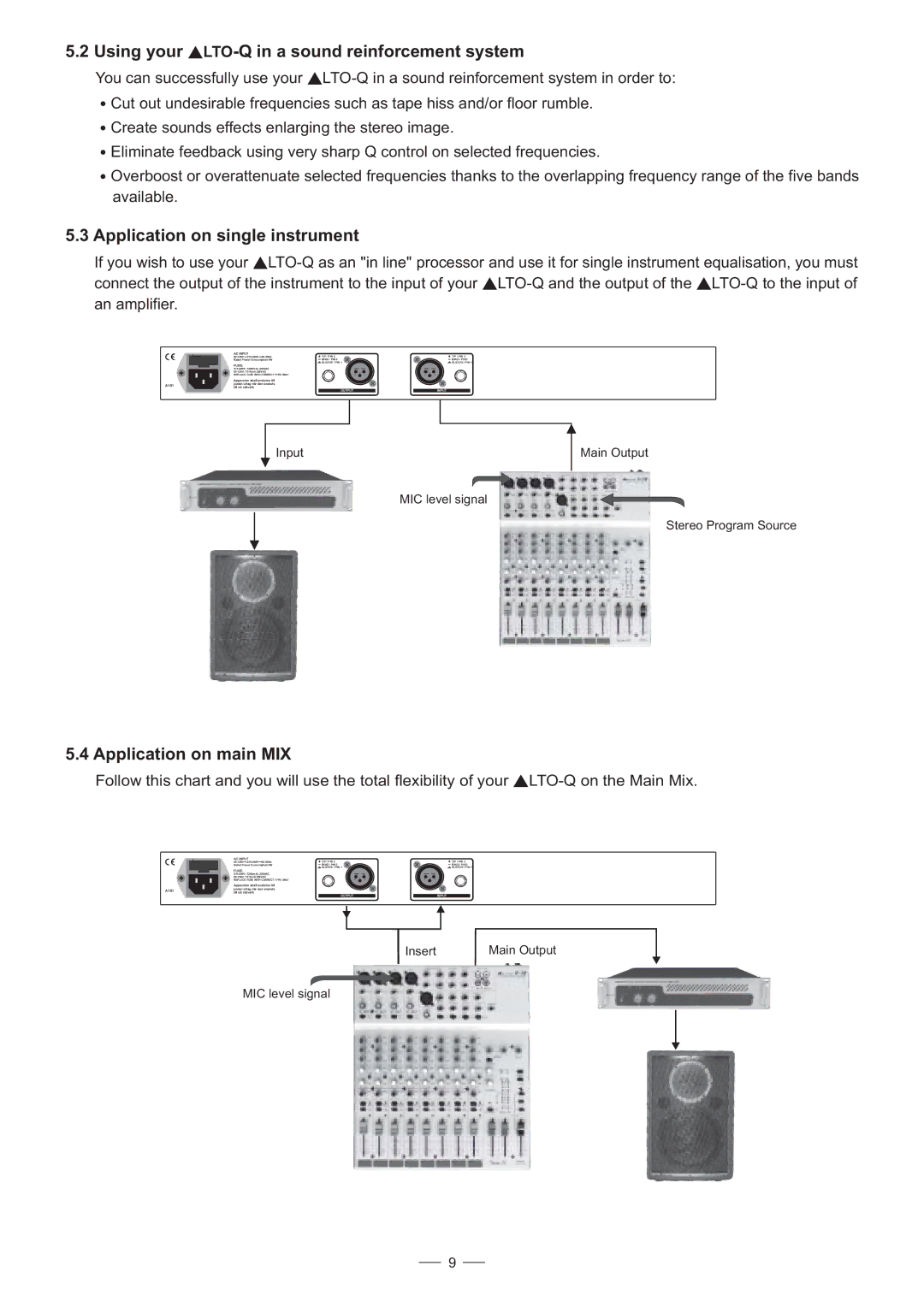
5.2Using your  LTO-Q
LTO-Q
You can successfully use your ![]() LTO-Q
LTO-Q
![]() Cut out undesirable frequencies such as tape hiss and/or floor rumble.
Cut out undesirable frequencies such as tape hiss and/or floor rumble.
![]() Create sounds effects enlarging the stereo image.
Create sounds effects enlarging the stereo image.
![]() Eliminate feedback using very sharp Q control on selected frequencies.
Eliminate feedback using very sharp Q control on selected frequencies.
![]() Overboost or overattenuate selected frequencies thanks to the overlapping frequency range of the five bands available.
Overboost or overattenuate selected frequencies thanks to the overlapping frequency range of the five bands available.
5.3Application on single instrument
If you wish to use your ![]() LTO-Q
LTO-Q![]() LTO-Q
LTO-Q![]() LTO-Q
LTO-Q
| AC INPUT |
| Rated Power Consumption 9W |
FUSE:
REPLACE FUSE WITH CORRECT TYPE ONLY
| Apparaten skall anslutas till |
| jordat uttag nar den ansluts |
A101 | till ett natverk |
TIP / PIN 2 |
|
| TIP / PIN 2 |
RING / PIN3 |
|
| RING / PIN3 |
SLEEVE / PIN 1 |
|
| SLEEVE / PIN 1 |
NEW | TIDE | NEW | TIDE |
| 3 |
| 3 |
2 | 1 | 2 | 1 |
Input
MIC level signal
Main Output
Stereo Program Source
5.4 Application on main MIX
Follow this chart and you will use the total flexibility of your ![]() LTO-Q
LTO-Q
| AC INPUT |
| Rated Power Consumption 9W |
FUSE:
REPLACE FUSE WITH CORRECT TYPE ONLY
| Apparaten skall anslutas till |
| jordat uttag nar den ansluts |
A101 | till ett natverk |
TIP / PIN 2 |
|
| TIP / PIN 2 |
RING / PIN3 |
|
| RING / PIN3 |
SLEEVE / PIN 1 |
|
| SLEEVE / PIN 1 |
NEW | TIDE | NEW | TIDE |
| 3 |
| 3 |
2 | 1 | 2 | 1 |
Insert | Main Output |
MIC level signal
9
